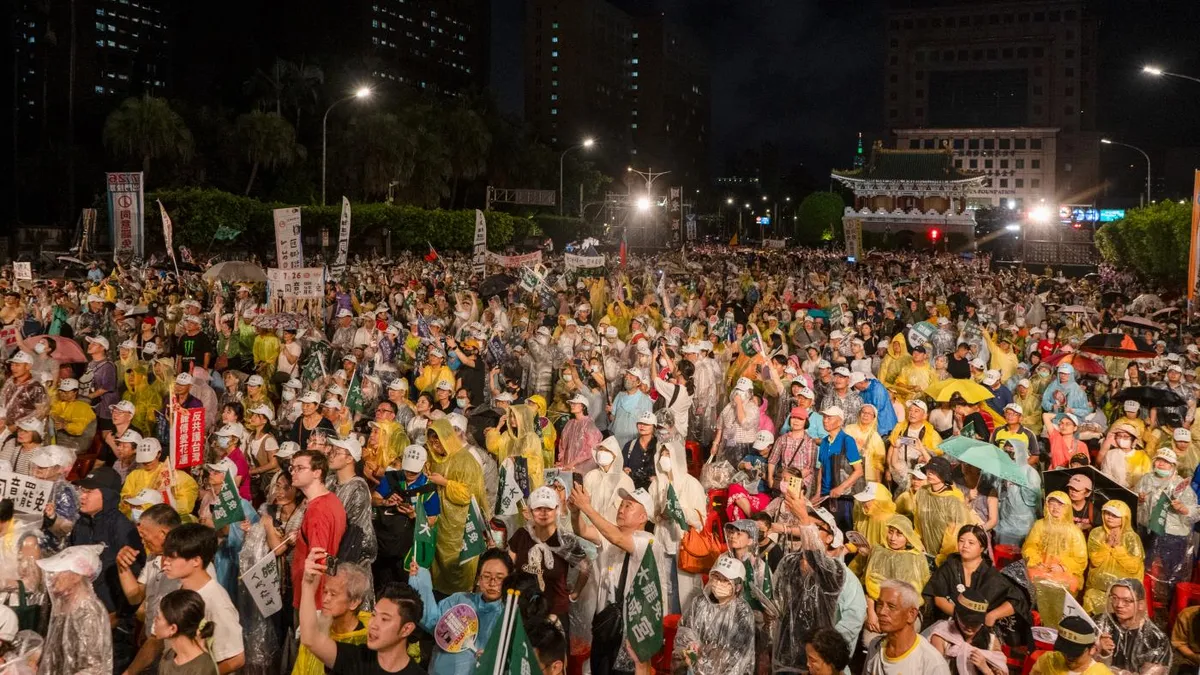
In a significant political event, opposition lawmakers in Taiwan have successfully thwarted a recall attempt aimed at removing them from the island's legislature, thereby preserving their controlling majority in parliament. This recall campaign, which spanned several months, ultimately failed to achieve its objective of breaking the existing political stalemate within the country.
The recall effort was initiated against 24 opposition lawmakers, who faced accusations of undermining Taiwan's national security and exhibiting pro-China sentiments. This public voting process was unprecedented in Taiwanese politics, marking the first time that recall petitions were mobilized on a national scale.
Since early 2024, opposition parties have dominated Taiwan's legislature following general elections where the Democratic Progressive Party (DPP) candidate, William Lai, won the presidency but lost control of parliament. Since then, opposition parties have effectively obstructed Lai's political agenda, including the rejection of constitutional court justices and significant budget cuts aimed at defense spending.
Local recall campaigner Mitch Yang voiced strong concerns about the motives of the opposition, stating, "They want to sabotage Taiwan from within," referring to the Chinese Communist Party (CCP). He highlighted the potential risks of undermining the government, suggesting that it could lower the costs for the CCP to invade Taiwan.
This political turmoil coincides with increasing military and diplomatic pressure from Beijing, which has long asserted sovereignty over Taiwan and has not ruled out the use of force to achieve unification. In response, the largest opposition party, the KMT, claims it is not pro-China but rather the only party capable of maintaining a balance between engagement with Beijing and robust defense strategies.
Alexander Huang, the KMT's director of international affairs, emphasized the need for a dual approach of deterrence and dialogue. He criticized the current lack of communication with Beijing, stating, "We cannot afford to have zero communication, but full confrontation." This stance underscores the KMT's position that budget cuts do not compromise national security but are part of necessary governmental accountability.
Experts like Nathan Batto from the Institute of Political Science at Academia Sinica suggest that while the opposition's hardball tactics may have provoked backlash from grassroots groups, their actions are not fundamentally unconstitutional. "The constitution grants people the right to recall," Batto noted, emphasizing the legitimacy of the recall process.
The ongoing struggle for political control has led to heightened tensions in the legislative chamber, resulting in physical altercations among lawmakers. Such confrontations have escalated to the point where they have hospitalized several individuals. In May 2024, the opposition introduced controversial legislation aimed at increasing parliamentary power over the presidency, which ignited protests across central Taipei and fueled the recall movement.
The KMT has characterized the recall petitions as a political maneuver orchestrated by the government to destabilize the democratic process. Huang articulated this sentiment, stating, "The massive recall against all KMT lawmakers elected only last year is an act to undo the election." Despite the DPP's late endorsement of the recall efforts, campaigners assert that their initiative was independent of party influence.
Currently, the KMT holds 52 of the 113 seats in parliament, maintaining a majority over the ruling DPP's 51 seats. As the opposition groups aimed to flip parliamentary control, local campaigners remain optimistic about future elections. "Once we get a majority in parliament, we can reset a lot of bad legislation," Yang expressed during a campaign event.
As the dust settles from the recent recall vote, the KMT remains emboldened and is calling for President Lai to engage in dialogue, saying, "It's really time to sit down and talk." In the coming weeks, voters will return to the polls for a second round of recall petitions, with seven more opposition legislators at risk of losing their seats. However, analysts predict that these upcoming votes may not significantly alter the current power dynamics in parliament.
With opportunities to remove opposition legislators seemingly exhausted, President Lai will likely face an empowered opposition until the end of his term in 2028. Political experts suggest that Lai must find ways to reach out and engage with the opposition, as simply continuing his current approach may not be viable going forward.